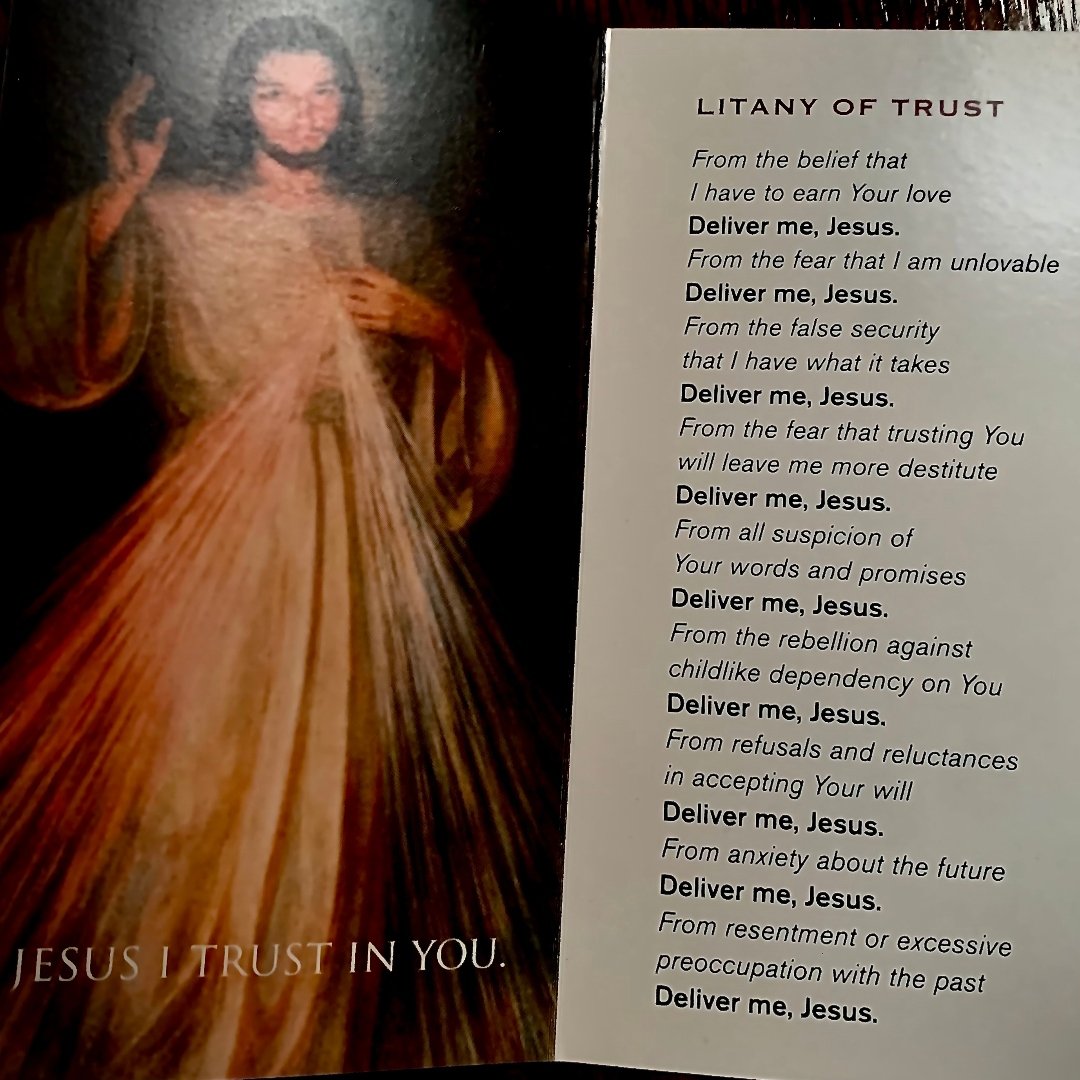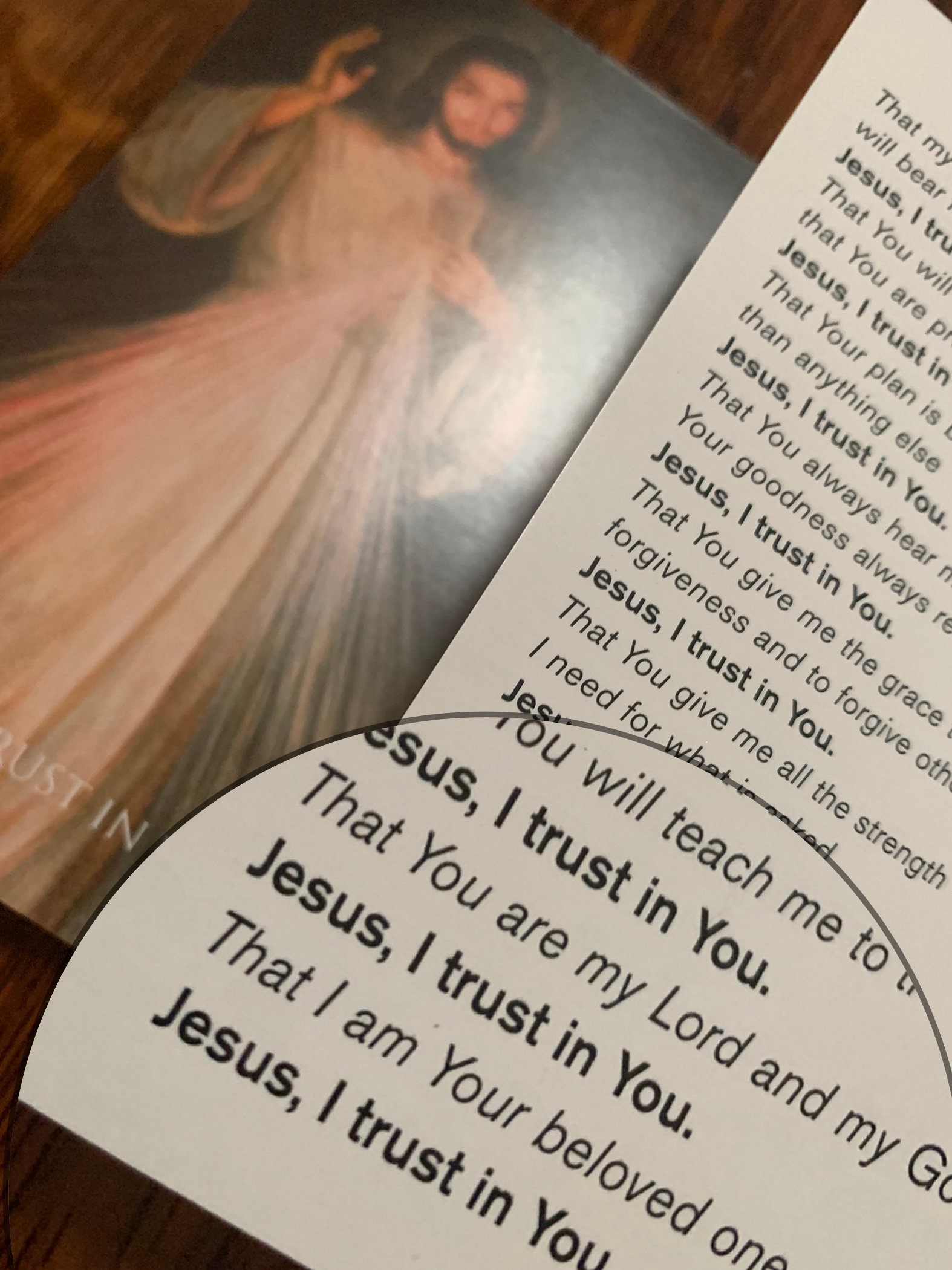
Sarah Torbeck discovers the Litany of Trust as an antidote to self-doubt.
[Author’s note: The Litany of Trust, a relatively new litany composed by Sr. Faustina of the Sisters of Life, has resonated with Catholics and non-Catholics alike. Everyone can identify with feelings of self-doubt, or worthlessness at some point in their lives. I believe women, especially, struggle with these issues. The following is my story of personal antipathy and restoration—through the Litany of Trust.]
I have lived a lifetime of insecurity. From my earliest years, I harbored an earnest belief that I was the fattest, ugliest, most unlovable child in my kindergarten class. My mother, who possessed zero fashion sense, didn’t help matters. She used to dress me in brown corduroy with matching saddle-oxfords. A fashion travesty to be sure, and I can remember staring at the reddish soles of my shoes during circle-time, wondering if anyone alive had ever been more wretched than me. I’m really sure I didn’t use those words, but my current vocabulary provides a more accurate description of my self-image.
By the time I was in the second grade, my admittedly myopic self-image remained intact. I was still the pitiful, disheveled clod who sat in the second row of Miss Smith’s classroom, watching the clock slowly make its way to dismissal time.
I know what you’re thinking at this point: “Why is she talking about her second grade class from a bazillion years ago?” I’m getting to that.
One afternoon after recess, my teacher made an announcement. “We’re going to start electing one student each week to be ‘Student of the Week.’ That person will receive free ice cream during lunch, for one week.” We audibly gasped! Imagine: a whole week of free ice cream! The magnitude of such a prize was dizzying. I anxiously watched as my teacher passed out small, yellow cards. “Here is your voting ballot,” she said. “I want you to choose a student you admire: someone who follows our classroom rules, and is a good friend.”

I honestly don’t remember who I voted for, but I remember being completely flabbergasted when my teacher announced the results of the class vote. The class had chosen me. I stared at my teacher with profound disbelief. I almost called for a recount, but I was seven so I didn’t actually know that was a thing; but there just had to be a mistake. Didn’t the class know what I knew? How could they have gotten it so wrong? It never occurred to me that I might be the one who was wrong.
How is it that we can possess such distorted images of ourselves? It would be easy to blame the environment, or popular social constructs, but I think that is far too simple. I have since spoken to many women who shared similar long-held beliefs about themselves. (I realize that some boys/men suffer from self-doubt as well, but I think that women represent the majority of self-doubters—and even self-haters.) Over the years I have occasionally conducted informal surveys of friends or family, in an effort to discover the origin of these seemingly intrinsic beliefs, but there is no single reason—and honestly, I’m not going to try and solve the mystery here. I suspect, however, that it may have more to do with a woman’s capacity for introspection, fellowship and communication. We aim to please.
By the time I was an adult, I had learned to skillfully hide my perceived wretchedness. I sported a slick, social veneer that fooled most of the people around me, but I still secretly believed that I was limited, dull, and hopelessly mediocre. If challenged, I could probably have provided a detailed list of my failures, and my self-reproof was always severe and unforgiving. I did not suffer fools, especially when the fool was me, and it was not uncommon to hear me whisper, “Oh God, why do you put up with me?” And I meant it. If I was God, I would have given up on me a long time ago.
Click to tweet:
How is it that we can possess such distorted images of ourselves? #catholicmom
But I am not God, and He has not given up on me. Not even a little. I recently forgot an important date, and a dear friend was deeply hurt as a result. I was immediately consumed with remorse. I apologized of course, but I could not forgive myself. I spent several days ruminating about my failures as a human being, when my gaze happened to fall on a copy of the Litany of Trust. It had been given to me at the funeral home after Steve died. Now I snatched it off the table and began to randomly read the petitions.

“From the fear that I am unlovable; deliver me Jesus.
That my life if a gift; Jesus, I trust in you.”
And finally, “That I am your beloved one. Jesus, I trust in you.”
My inner demons grew quiet as I re-read the last line. I am His beloved. You are His beloved. We are His beloved. Would He have died for anything less … than His beloved?
I should probably elaborate … but at some point words are no longer necessary.

Copyright 2022 Sarah Torbeck
Images: (top) Canva; others copyright 2022 Sarah Torbeck, all rights reserved.
About the Author

Sarah Torbeck
Sarah Torbeck is a Wife, former LEO Widow, a Mother and Grandmother. She is a former writing teacher and RCIA Director, and currently writes for several Catholic publications as well as her personal blog. (Habakkuk 3:19)


.png?width=1806&height=731&name=CatholicMom_hcfm_logo1_pos_871c_2728c%20(002).png)
Comments